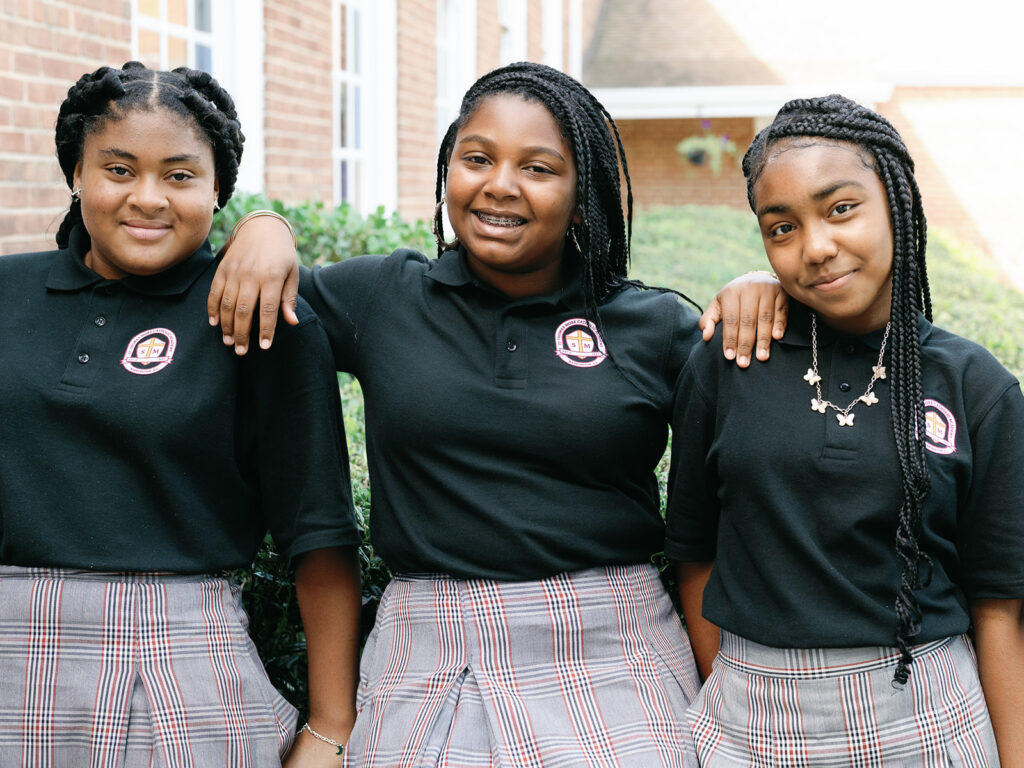
Imagine being a principal within a school and being required to teach a class. If you’re a principal reading this you may be running a catholic school and find this to be absolutely normal.
Take a middle school eighth grade class, one that started middle school in a pandemic, were thrown back into school in small cohorts due to distance learning and spent most of their final year in elementary education.
Pair them together and you have the St. Thomas More Catholic Academy Graduating Class of 2023.
I found myself thrown into a classroom with some of our most difficult students; they are loud, sometimes obnoxious and in short, the world’s craziest teenagers. However, they knew there was much more they needed to learn and through lots of yelling, lots of crying, and even more parent phone calls and emails there was one learning outcome for each of us:
School is a very important part of each of our lives.
In a focus group, scholars reflected on our work in a learning unit rooted in the contemporary fiction novel, Promise Boys by Nick Brooks. Within the story, three young boys of color are accused of murdering their school principal. Believe me when I say, this specific book hit home, and not because many of the middle schoolers wanted the school principal dead, but because it brought to light the complexities that exist within schools, especially those educating Black and Latino students.
With an interrogation of the text the graduating class of 2023 spent time really delving into the things that made school a place of security and belonging, and thought critically about the ways in which it marginalized, oppressed, and limited children of color. Our eighth grade class didn’t hold back. With the creation of one pagers and the analysis and annotating the text scholars really looked closely at the ways Brooks highlights the disparities that exist in schools and directly impact the growth and wellness of students.
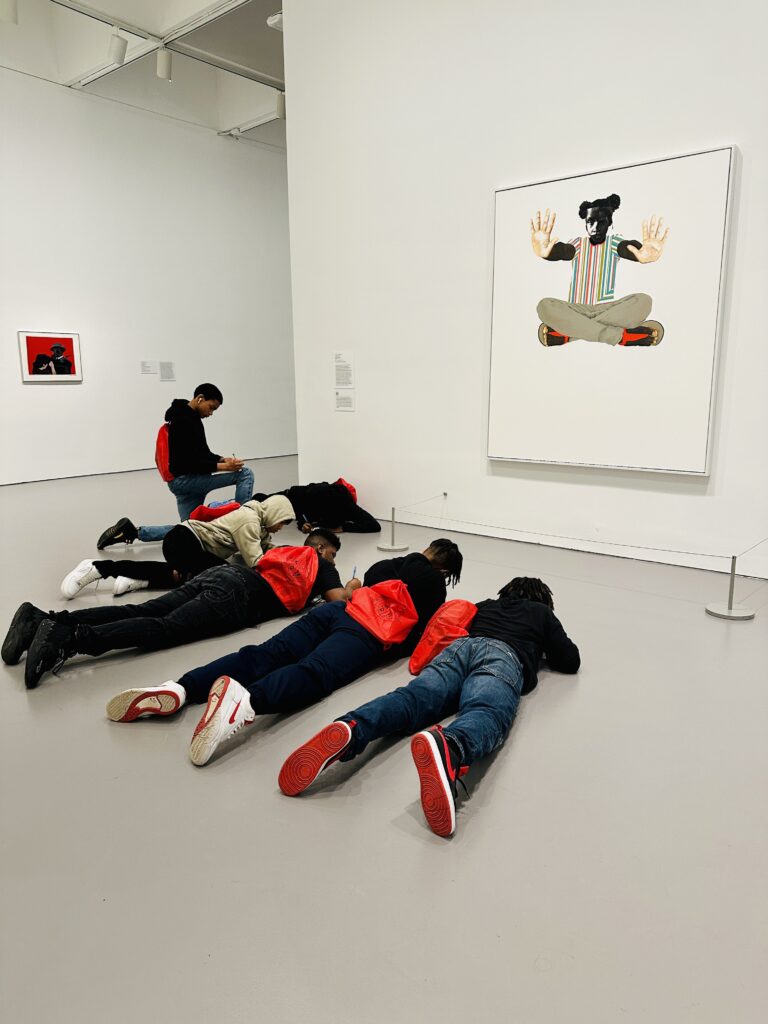
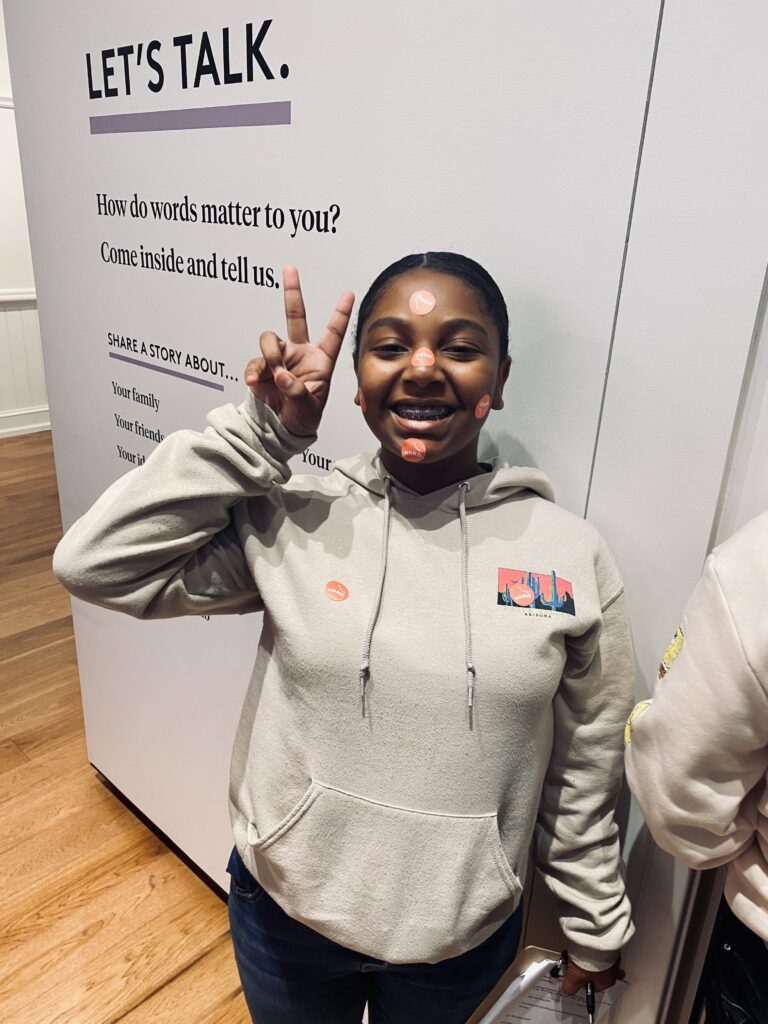
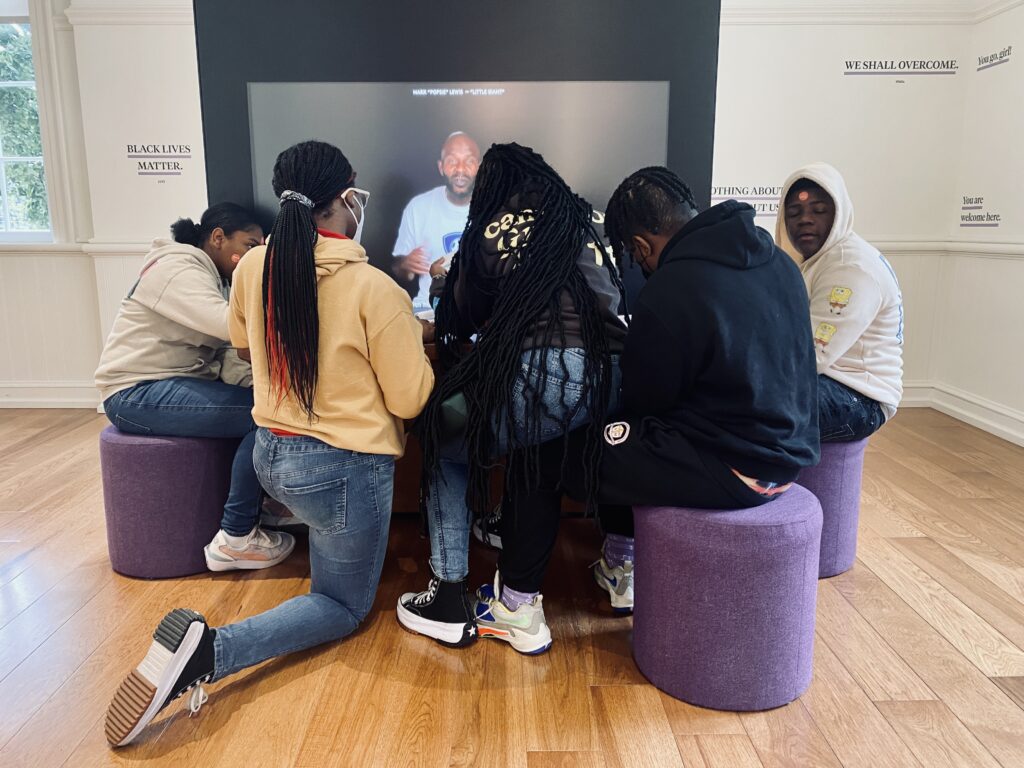
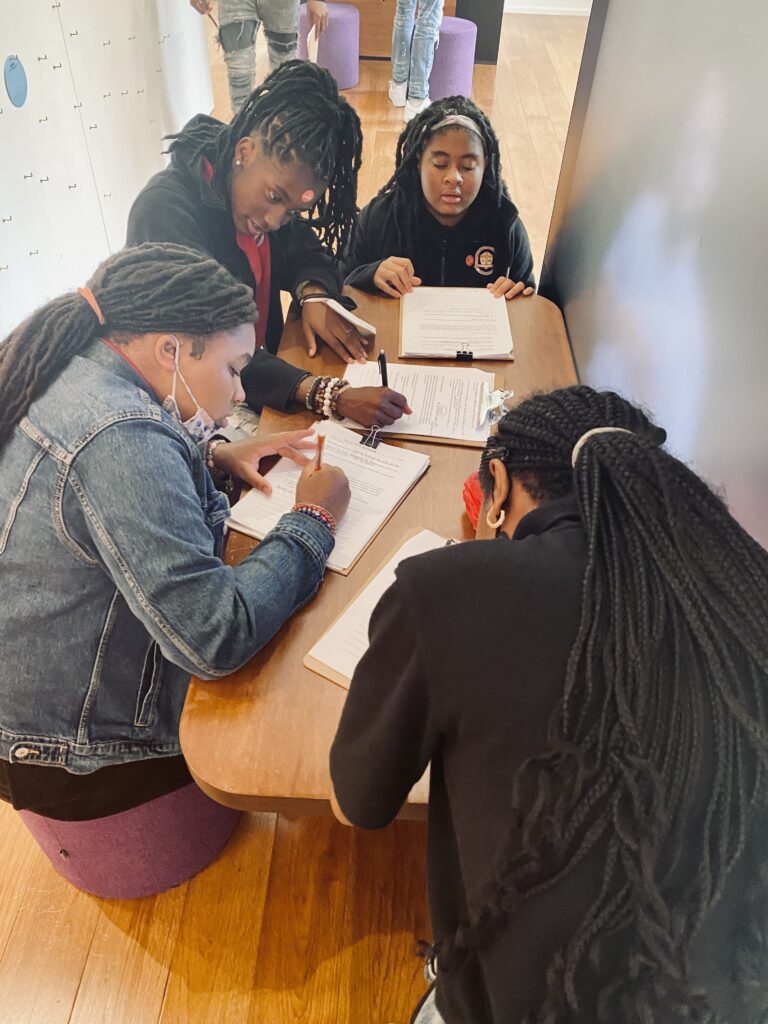
During our focus group eighth graders were asked to reflect and speak transparently about our school community. Here’s just a little of what they had to say:
Does STM educate?
S1: Since I’m here more than I am at home, I learned a lot about love. I know its school but the teachers don’t just throw work at us, they show us love and make us understand why we have to know something, and a lot of kids have teachers that just want them to get out.
S2: It does educate, I learned how to write essays.
S3: STM does educate, but I think we could add more to the curriculum especially navigating things in the future, but far as umm, math, science, our teachers tell us what we need now and as an adult.
S4: Our teachers help, if we don’t understand something they meet with us.
How can STM be better?
S1: We need more to our curriculum, we need classes like foreign language and financial literacy. Other than adding those things, I think STM is good.
S2: We need more resources and clubs for middle school like activities, how we can help those with things that are keeping them from school or from being successful.
S3: Bring our reality into school, we experience a lot and we can learn from those things within school too. We are all different, yeah we’re all black, but we deal with different things and we need to learn from those things and help with those who need it.
What does “family” have to do with educating? How does STM create that “family safe space”?
S1: I obeyed my teachers not because they was teachers but because they are family. That connects right to my education because yeah I come to school the teachers discipline me and I obey not because its a rule but because they care and that shows me love and that’s a reason to follow.
What advice would you give to your teachers/principal?
S1: Help us explore our craziness. We need to learn about our communities, our culture and understand that there are a lot of um differences.
S2: We ain’t just kids we have feelings and sometimes we need the teachers to know they got emotions and we got emotions and sometimes they push their emotions on us. We just all need wellness.
S3: Yeah we can create safe spaces in school and that would be positive. A safe space here would be welcoming, accepting and comfortable. We need to acknowledge stuff and give support. Some teachers are aware but we need to continue to work together to create spaces of comfort.
S4: All the teachers are good and need to just keep making cool and safe spaces. The environment needs to be nice and make the temperature comfortable like cold like it is in Mrs G room. And add smells to, and just have nice voices and speak calmly or at least be funny.
S5: Don’t be like other schools that stereotype black kids; everytime we get stereotyped adults push us into a shell and we can’t open up. Get to know us, all of us. We have different experiences, people be saying all the time my generation, my generation, but your generation ain’t have these experiences, we had to mature faster, understand things earlier, I mean I know people had to deal with stuff but just remember that some of us are kids who deal with adult stuff, don’t think little of us.
There certainly was much more to decipher from the focus group but in short one of our school’s most difficult class opened my eyes to something that after listening to them seemed rather simple:
Do all things with love and care
Being a kid is hard, being a Black kid is even harder, being a Black kid from a marginalized area, seems impossible. What’s for sure, is that the Class of 2023 has taught us more about the norms and systems that are in place in our school, many that must continue, but some that need some revamping or even dismantling.
After a year’s investigation of looking at the ways in which learning can and should take place for children of color, STM is committed to continuing our work in building spaces of learning rooted in love and leading, teaching, and inspiring, reflecting love daily according to the Scriptures, and using some last minute advice from the very students who sit within our classroom:
S1: “Take a deep breath”
S2: “Be understanding”
S3: “Don’t give up on children”
S4: “Be present”
S5: “Be Supportive”
S6: “Listen to us”
S7: “Make things hands on”
Ironically one of our toughest classes, oftentimes absurd, has taught us a lot about the shifts that must be made to make school promising for them; the work continues, no matter the challenges.
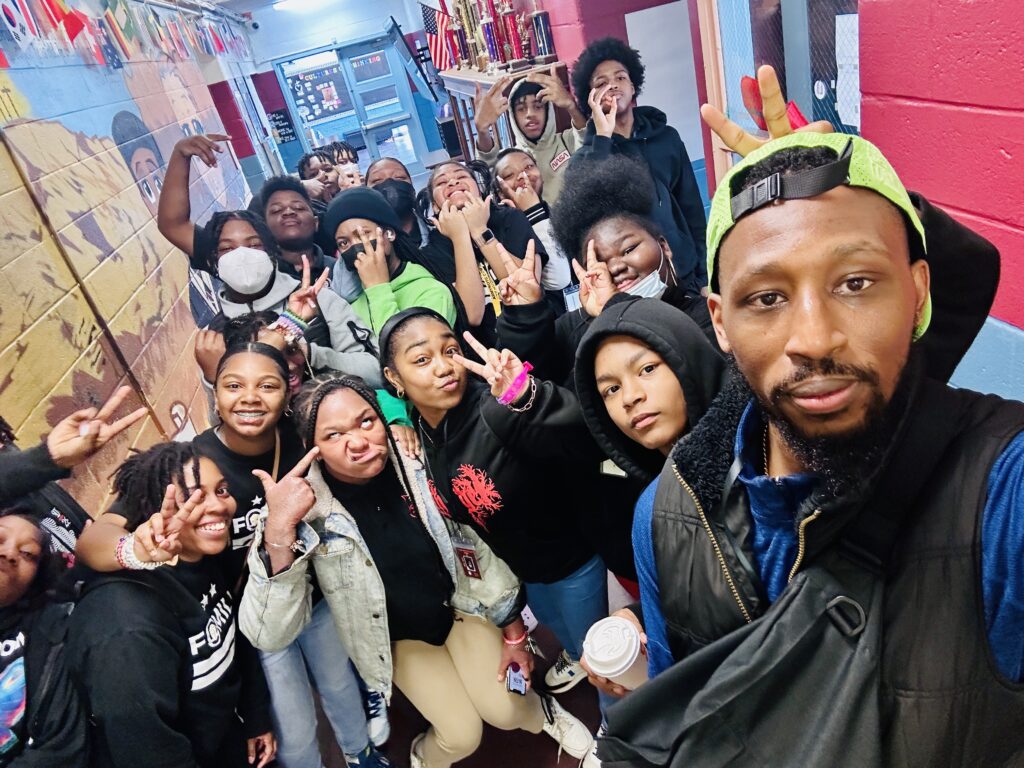
Education